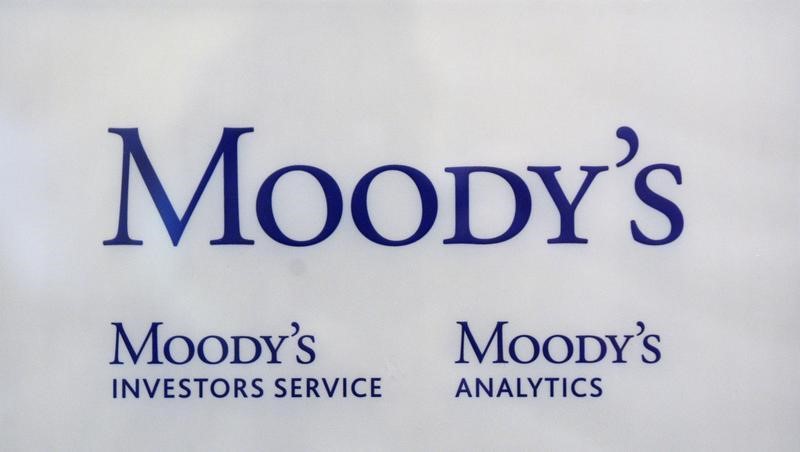By Richard Leong
(Reuters) - Moody's Investors Service said on Thursday it would consider stripping the United States of its top-notch rating in the event of a default, not over late or skipped payments on non-debt obligations, as the federal government faces the possibility of running out of cash in coming weeks.
The rating agency's warning about a possible U.S. downgrade seemed less dire and narrower in scope than that of rival Fitch Ratings, who said on Wednesday that prioritising debt service payments over other government obligations, should the debt ceiling not be raised, "may not be compatible with 'AAA' status."
Delays on non-debt payments including salaries to federal employees and payments to social programs such as Social Security would not result in Moody's stripping the U.S. government of its Aaa rating, the agency said in its annual analysis of the United States.
"If the Treasury were to fail to meet some of its non-debt obligations as a result of a political deadlock over this issue, that would not affect the U.S. sovereign rating because our ratings reflect the risk of default and loss on government debt, not the risk of failed or delayed payment on non-debt obligations," Moody's said.
It is not clear whether investors would side with Moody's on payment prioritisation as an assurance of the government's full faith and credit on its debt.
"If you run arrears of any kind, it's a negative," said Robert Tipp, chief investment strategist at PGIM Fixed Income in Newark, New Jersey. "When you see a lot of smoke, you have to account for that in your rating."
These assessments from Moody's and Fitch came due to a possible showdown in Washington over increasing the federal statutory borrowing limit from $19.9 trillion before possibly running out money in late September.
It is not clear how lawmakers, who are in recess and will return on Sept. 5, would achieve the votes to raise the debt ceiling even as Republicans control the White House and both chambers of Congress.
On Thursday, President Donald Trump criticized fellow Republicans over their handling of the debt ceiling.
U.S. government debt is seen as the most liquid and safest asset in the world. Traders fear a possible U.S. default would roil financial markets.
The government's interest payments in October are "relative small" but a sizable $35 billion in interest is due on Nov. 15 which is equivalent to the expected 16 percent of revenues for that month, Moody's said.
Interest rates on Treasury bills due in October were higher than those due in September and November on worries about delayed payments. (US1MT=RR) (US3MT=RR)
If the U.S. Treasury Department cannot sell more debt in early October because the debt ceiling is not increased, the government would prioritise its obligations to preserve the full faith and credit of the U.S. government and financial market stability, Moody's said.
This may result in a partial government shutdown as it would delay or reduce 14 percent of its overall spending.
"A shutdown of some government operations - as would be inevitable in such a scenario - would be disruptive to the economy, and more disruptive the longer any shutdown went on," Moody's said.
Chances the debt ceiling would not be increased in time are "low" despite how contentious it has been recently to achieve a borrowing increase, Moody's said.
If the government does miss debt payments, "that would, as we have indicated in the past, have negative rating implications," it said.
